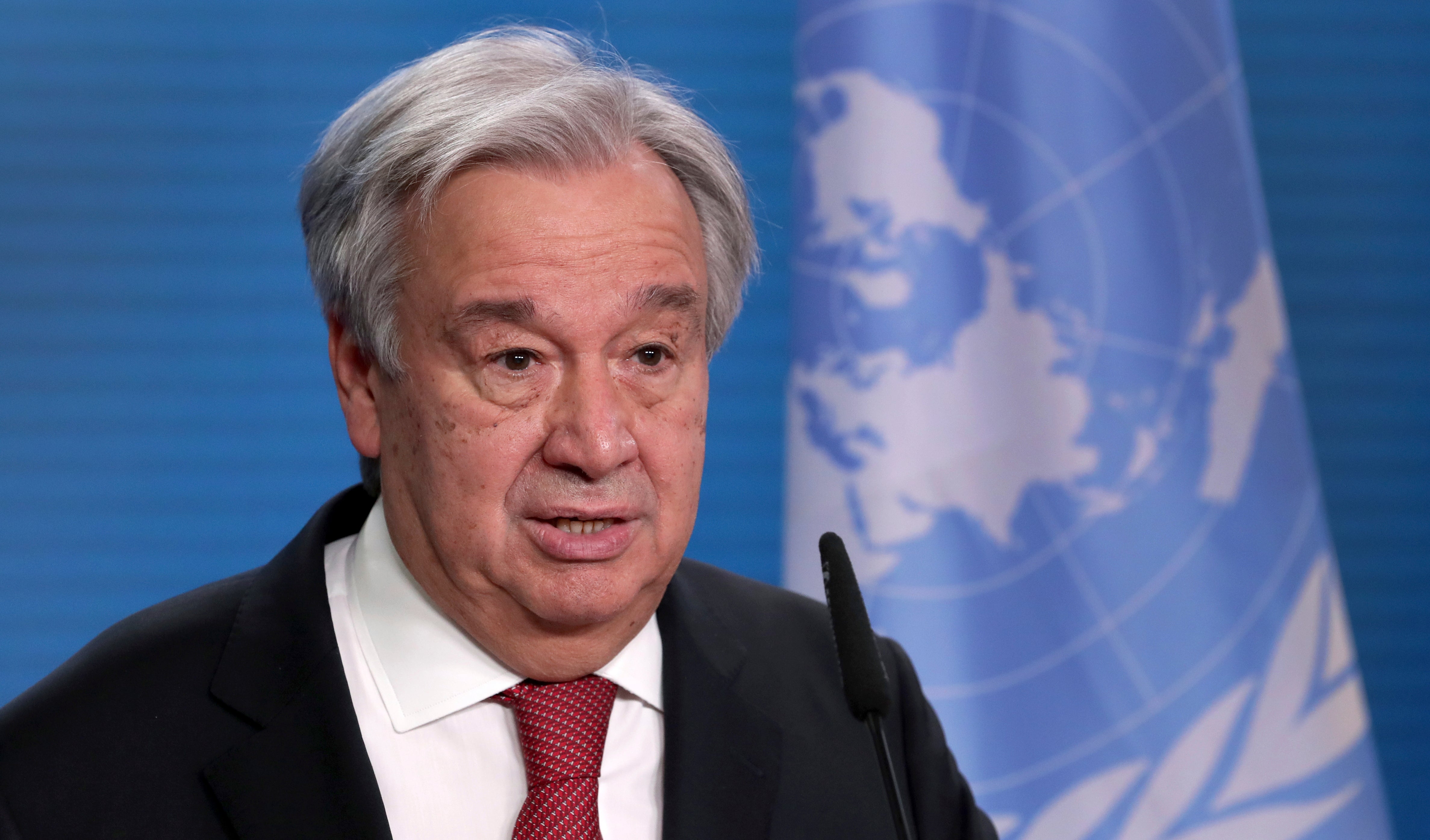UN agrees to deploy cease-fire monitors in Libya
The U.N. Security Council has agreed to deploy international monitors to watch over a nearly six-month-old cease-fire agreement in Libya

Your support helps us to tell the story
From reproductive rights to climate change to Big Tech, The Independent is on the ground when the story is developing. Whether it's investigating the financials of Elon Musk's pro-Trump PAC or producing our latest documentary, 'The A Word', which shines a light on the American women fighting for reproductive rights, we know how important it is to parse out the facts from the messaging.
At such a critical moment in US history, we need reporters on the ground. Your donation allows us to keep sending journalists to speak to both sides of the story.
The Independent is trusted by Americans across the entire political spectrum. And unlike many other quality news outlets, we choose not to lock Americans out of our reporting and analysis with paywalls. We believe quality journalism should be available to everyone, paid for by those who can afford it.
Your support makes all the difference.International monitors will watch over a nearly six-month-old cease-fire agreement in Libya the U.N. Security Council decided in a vote announced Friday, as the country heads toward December elections after a decade of fighting and upheaval.
The council agreed unanimously to follow through on Secretary-General Antonio Guterres’ recent proposal for up to 60 monitors to join an existing political mission in Libya.
The monitors would arrive in an “incremental deployment ... once conditions allow," according to the council's British-drafted resolution. The measure also urges all foreign forces and mercenaries to get out of the country, as was supposed to happen months ago.
“We now expect all U.N. members to act on that, helping Libya to regain its sovereignty and work towards lasting peace and stability,” Britain's minister for the Middle East and North Africa, James Cleverly said in a statement from London.
He heralded the resolution as sending “a clear signal of support” for Libya's transitional government, which took power last month and is expected to lead the country to the elections, planned Dec. 24.
Libya's U.N. mission didn't immediately comment on the resolution. The country didn't get to vote on them, as it isn't a member of the 15-nation council. Voting was conducted by email, due to the coronavirus pandemic; the results were announced at a brief virtual meeting.
Libya has been wracked by chaos since a NATO-backed uprising toppled longtime dictator Moammar Gadhafi in 2011 and split the oil-rich North African country between a U.N.-supported government in the capital, Tripoli, and rival authorities based in the country’s east.
Each side was backed by armed groups and foreign governments. The U.N. estimated in December there were at least 20,000 foreign fighters and mercenaries in Libya, including Syrians, Russians, Sudanese and Chadians.
In April 2019, east-based commander Khalifa Hifter and his forces, backed by Egypt and the United Arab Emirates, launched an offensive to try and capture Tripoli. His 14-month-long campaign collapsed after Turkey stepped up its military support of the U.N.-backed government with hundreds of troops and thousands of Syrian mercenaries.
The cease-fire agreement, reached in October, called for the foreign fighters to leave within three months.
The cease-fire deal has dramatically reduced civilian casualties, but the U.N. has continued to document killings, forced disappearances, sexual violence, arbitrary arrests, hate crimes and attacks against activists and human rights defenders in Libya, U.N. special envoy Jan Kubis told the council last month.
The Security Council resolution also demands all countries fully comply with a decade-long U.N. arms embargo on Libya. A recently released report by U.N. said the embargo has been “totally ineffective.”
___
Associated Press writer Edith M. Lederer contributed.